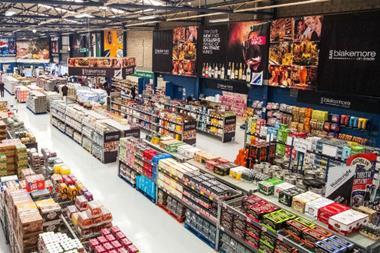
The industry has two weeks to prepare for the increases in the National Living Wage and the National Minimum Wage set to roll out from 1 April 2025.
Retailers said they are working additional hours, reducing staff hours and optimising operations to “absorb the rising costs” announced in last year’s Budget - warned to cost the sector £666m, according to the Association of Convenience Stores (ACS).
The new National Living Wage will increase by 6.7% to £12.21 per hour. A wage rise worth £1,400 a year for an eligible full-time worker, said the government.
The National Minimum Wage for 18-20 year olds is set to increase by £1.40 to £10 per hour, representing a “record” annual pay boost of £2,500 for full-time workers under 21, said the government
The ACS warned the government that retailers are “grappling to afford” the 6.7% hike in the National Living Wage amid growing financial pressures.
James Lowman, chief executive of the ACS, expressed the fears weighing on the minds of many indie retailers: “Our members are grappling with how to afford this inflation-busting increase in wage costs. The market remains tough, with many retailers reporting flat or declining sales while expenses like banking charges, credit card processing fees and energy bills are eating away at their profitability.
”For some communities, this could mean the viability of their local shop is put at risk.”
In just over two weeks, retailers will face an additional cost as the National Insurance (NI) is set to rise. Currently, businesses pay a rate of 13.8% on employees’ earnings above a threshold of £9,100 a year.
From 6 April 2025, the rate would increase to 15% and the threshold would be reduced to £5,000, said Chancellor Rachel Reeves.
The NI increase would lead to higher prices in stores, warned the British Retail Consortium.
“Retailers now face difficult decisions about future investment, employment and pricing. Retailers have worked hard to shield their customers from higher costs, but with slow market growth and margins already stretched thin, it’s inevitable that consumers will bear some of the burden,” explained Helen Dickinson, chief executive at the British Retail Consortium.











![WG-4003[58]](https://d2dyh47stel7w4.cloudfront.net/Pictures/274x183/4/5/1/353451_wg400358_6083.jpg)
















No comments yet